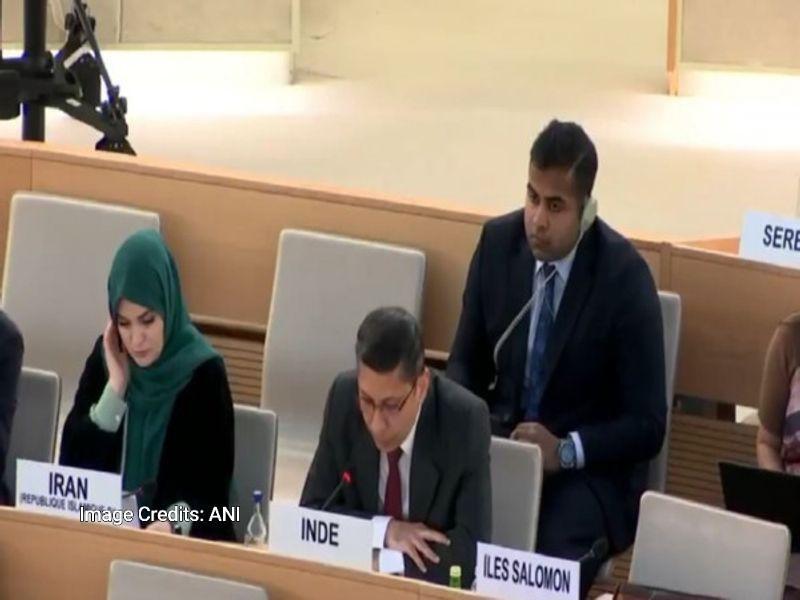
Unfounded, Baseless: India on UNHRC Chief Remarks on J&K, Manipur
In a stern rebuke, India has termed the recent remarks made by the UN’s human rights chief, Volker Türk, on Jammu and Kashmir (J&K) and Manipur as “unfounded and baseless”. The statement was made by India’s permanent representative to the United Nations, Arindam Bagchi, in response to the UNHRC chief’s comments on the two troubled regions.
The UNHRC chief had expressed concerns over the restrictive laws in J&K, which were imposed following the revocation of Article 370 in 2019. He also called for addressing the violence in Manipur, which has been plagued by insurgency and political unrest for decades.
However, India’s response to the UNHRC chief’s remarks was swift and unequivocal. “The world’s largest democracy continues to be a healthy, vibrant, and pluralistic society,” Bagchi said, dismissing the concerns raised by the UNHRC chief. He accused the UNHRC chief of “cherry-picking” human rights issues and ignoring the positive developments in J&K and Manipur.
The Indian government has long maintained that the restrictive laws in J&K were necessary to maintain peace and stability in the region following the revocation of Article 370. The government has also claimed that the measures were taken to ensure the security and well-being of the people of J&K.
Similarly, in Manipur, the government has accused the UNHRC chief of ignoring the efforts made by the state government to address the issues of insurgency and political unrest. The government has launched several initiatives to promote peace and reconciliation in the region, including the implementation of the “Inner Line Permit” system, which restricts the movement of non-Manipuris into the state.
The Indian government’s response to the UNHRC chief’s remarks has been widely welcomed by the people of J&K and Manipur. Many have expressed relief that the government is standing up for the rights and interests of the people, rather than bowing to international pressure.
“This is a welcome move by the government,” said a resident of Jammu. “We are tired of being told what to do by the UN and other foreign agencies. We know what is best for us, and we will not be swayed by their opinions.”
A similar sentiment was expressed by a resident of Imphal, the capital of Manipur. “We are grateful to the government for standing up to the UNHRC chief’s remarks,” he said. “We know that the government is working hard to address the issues of insurgency and political unrest in the state, and we appreciate their efforts.”
However, not everyone is happy with the government’s response to the UNHRC chief’s remarks. Some human rights activists have expressed disappointment and frustration with the government’s rejection of the UNHRC chief’s concerns.
“The government’s response is disappointing and frustrating,” said a human rights activist. “We understand that the government has its own agenda, but we also expect it to listen to the voices of the people and respond to their concerns. The government’s rejection of the UNHRC chief’s remarks is a step backward for human rights in India.”
Despite the controversy surrounding the UNHRC chief’s remarks, the Indian government remains committed to promoting human rights and protecting the rights of its citizens. The government has launched several initiatives to promote human rights, including the establishment of the National Human Rights Commission and the implementation of the Human Rights Act.
In conclusion, the Indian government’s response to the UNHRC chief’s remarks on J&K and Manipur has been unwavering and unequivocal. The government has rejected the UNHRC chief’s concerns as “unfounded and baseless”, and has instead emphasized the positive developments in the two regions. While some may disagree with the government’s response, it is clear that the government is committed to promoting human rights and protecting the rights of its citizens.






